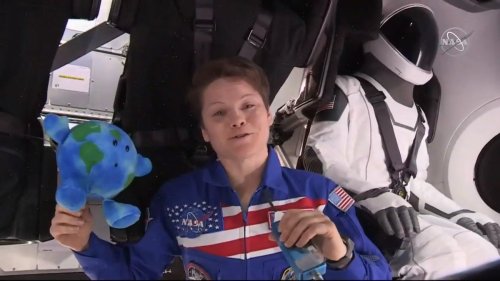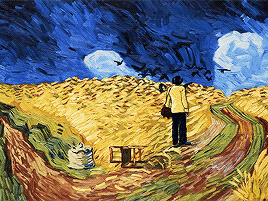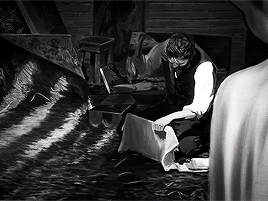Demo-1: What’s The Deal?
Demo-1: What’s the Deal?
Whether or not you caught the SpaceX Crew Dragon launch this past weekend, here’s your chance to learn why this mission, known as Demo-1, is such a big deal.
The First of its Kind
Demo-1 is the first flight test of an American spacecraft designed for humans built and operated by a commercial company.
Liftoff

The SpaceX Crew Dragon lifted off at 2:49 a.m. EST Saturday, March 2, on the company’s Falcon 9 rocket from Kennedy Space Center.
This was the first time in history a commercially-built American crew spacecraft and rocket launched from American soil.
Docking the Dragon

After making 18 orbits of Earth, the Crew Dragon spacecraft successfully attached to the International Space Station’s Harmony module at 5:51 a.m. EST Sunday, March 3. The Crew Dragon used the station’s new international docking adapter for the first time since astronauts installed it in August 2016.
The docking phase, in addition to the return and recovery of Crew Dragon, are critical to understanding the system’s ability to support crew flights.
A New Era in Human Spaceflight

Although the test is uncrewed, that doesn’t mean the Crew Dragon is empty. Along for the ride was Ripley, a lifelike test device outfitted with sensors to provide data about potential effects on future astronauts. (There is also a plush Earth doll strapped inside that can float in the microgravity!)
Astronauts on the International Space Station welcomed the Crew Dragon spacecraft in a ceremony onboard. NASA Astronaut Anne McClain from inside Crew Dragon said, “Welcome to a new era in human spaceflight.”
Inside the Dragon
For future operational missions, Crew Dragon will be able to launch as many as four crew members and carry more than 220 pounds of cargo. This will increase the number of astronauts who are able to live onboard the station, which will create more time for research in the unique microgravity environment.
SpaceX and NASA

Elon Musk, CEO and lead designer at SpaceX, expressed appreciation for NASA’s support: “SpaceX would not be here without NASA, without the incredible work that was done before SpaceX even started and without the support after SpaceX did start.”
Preparation for Demo-2

NASA and SpaceX will use data from Demo-1 to further prepare for Demo-2, the crewed flight test that will carry NASA astronauts and Doug Hurley and Bob Behnken to the International Space Station. NASA will validate the performance of SpaceX’s systems before putting crew on board for the Demo-2 flight, currently targeted for July 2019.
Undocking

The Crew Dragon is designed to stay docked to station for up to 210 days, although the spacecraft used for this flight test will remain docked to the space station for only five days, departing Friday, March 8. (We will be providing live coverage — don’t miss it!)
Demo-1: So What?

Demo-1 is a big deal because it demonstrates NASA and commercial companies working together to advance future space exploration! With Demo-1’s success, NASA and SpaceX will begin to prepare to safely fly astronauts to the orbital laboratory.
Follow along with mission updates with the Space Station blog.
Make sure to follow us on Tumblr for your regular dose of space: http://nasa.tumblr.com
More Posts from Teddyglez1976 and Others
Mi impresionista favorita. 😘😍🌸🌺🌻🌞

Berthe Morisot (French, 1841 - 1895): River in the Bois de Boulogne (1886) (via Sotheby’s)


credit
Your Gut in Space
Finding the Right Balance for the Microbiota
Trillions of microorganisms live on and in the human body, many of them essential to its function and health. These organisms, collectively known as the microbiota, outnumber cells in the body by at least five times.

Microorganisms in the intestinal tract, the gut microbiota, play an especially important role in human health. An investigation on the International Space Station, Rodent Research-7 (RR-7), studies how the gut microbiota changes in response to spaceflight, and how that change in turn affects the immune system, metabolic system, and circadian or daily rhythms.

Research shows that the microbiota in the mammalian digestive tract has a major impact on an individual’s physiology and behavior. In humans, disruption of microbial communities has been linked to multiple health problems affecting intestinal, immune, mental and metabolic systems.

The investigation compares two different genetic strains of mice and two different durations of spaceflight. Twenty mice, ten of each strain, launch to the space station, and another 20 remain on the ground in identical conditions (except, of course, for the absence of gravity). Mice are a model organism that often serves as a scientific stand-in for other mammals and humans.

Fecal material collected from the mice every two weeks will be examined for changes in the gut microbiota. Researchers plan to analyze fecal and tissue samples after 30 and 90 days of flight to compare the effects of different durations of time in space.

With a better understanding of relationships between changes such as disruption in sleep and an imbalance of microbial populations, researchers can identify specific factors that contribute to changes in the microbiota. Further studies then can determine proactive measures and countermeasures to protect astronaut health during long-term missions.

Make sure to follow us on Tumblr for your regular dose of space: http://nasa.tumblr.com.

Marguerite Gérard (French, 1761 - 1837): The reading of the gazette (via Sotheby’s)








Loving Vincent (2017)

La actriz mexicana María Félix.


Follower of Artemisia Gentileschi (Italian, 1593 - c. 1656): A lady before a mirror, possibly Venus at her toilet (via Sotheby’s)
.
-
 venusismygirl liked this · 4 years ago
venusismygirl liked this · 4 years ago -
 olfamannai liked this · 4 years ago
olfamannai liked this · 4 years ago -
 113paco liked this · 4 years ago
113paco liked this · 4 years ago
Dedicado a los finos amantes de las bellas artes y el estilo exquisito del buen comer.
145 posts